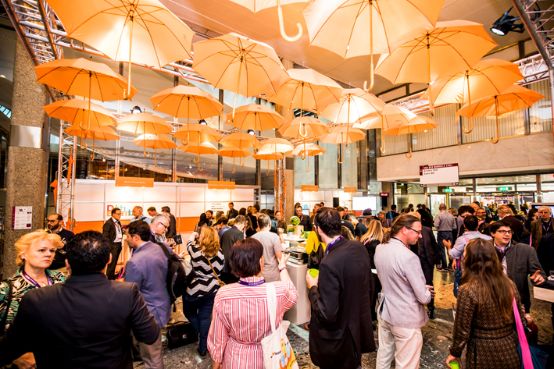Meeting place of the classical music world
The trade fair for the classical music market opened its doors again in Rotterdam in mid-May. 330 exhibitors, 24 musical program items selected by a jury, 14 workshop formats and a dense conference: more than 1300 visitors from 40 countries took part in the seventh edition.

The French music market was a focal point of the program; the opening concert featured artists such as the Quatuor Van Kuijk, flautist Juliette Hurel, Alexandre Tharaud and Les Voix Animées, followed by another concert evening with contemporary music by Chloe and Vassilena Serafimova and Accroche Note, among others, on Friday.
The exchange opportunities were also well prepared this year and even better attended. In addition to the expected intermediary business and the exhibition (publishers, institutions, ensembles, producers and agencies), the workshop program (in English) was curated in a varied manner.
Partly heretical and controversial
One workshop, entitled Biased? the question of why the much-vaunted cultural change in organizations and institutions shows so little momentum - and brings so little joy to those involved. The heretical question posed by Stephen Frost (Frost Included, London) as to whether everyone present welcomed diversity and inclusion could obviously only be answered in the affirmative. Susanna Eastburn (Sound and Music, London) expanded on the point about how everyone is often trapped by socially homogeneous group contexts and the restrictions we are all subject to when it comes to ordering the world by asking whether it is not possible to think about participation differently: from "Who do we want to work with?" to "Who wants to work with us?".
As in previous years, questions about streaming and the digital use of musical products gave rise to controversial discussions, from which the following conclusion could be drawn: If the young "digital guys" use their know-how to interfere in the marketing strategies of the houses and ensembles because they want to make their music available to fans on their portals, then the old-style artistic directors are called upon to let go of "their" product and follow the inclined audience, who will perhaps attend the live "concert" experience in the future, on their listening paths.
The explanations on music education for young audiences seemed a little old-fashioned; here, contributions from the target groups would be a refreshing change from the always similar "Concert for ..." concepts.
The community spirit comes alive
The four-day event seems to be worthwhile for many participants from the broad spectrum of the music sector: International contacts, broadening knowledge beyond their own field and a renewed "community spirit", as Classical:next director Jennifer Dautermann emphasizes, are increasingly making the annual event a permanent fixture in the agendas of orchestra directors, festival planners and agencies.
The exhibition stand managed by the Fondation Suisa was a good location for the Swiss music market; there was a presentable roof for discussions, getting to know each other (or refreshing acquaintances from previous years) and networking on an international level. It was probably not least thanks to the support of Pro Helvetia that more artists decided to take part, an opportunity that will become even more widely known.
The next Classical:next will once again take place from May 15 to 18, 2019 at De Doelen music center in Rotterdam.








